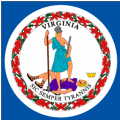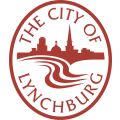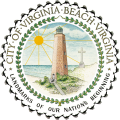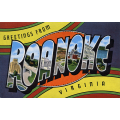Virginia is home to over one hundred accredited nursing schools. To help aspiring nurses organize the large number of choices, we have profiled below the duration, cost, and level of education required for each major nursing role.
Certified nursing assistant (CNA)
Virginia
We've organized a comprehensive list of Virginia nursing schools. Below you'll find information on specific nursing programs such as LPN certificates and ADN, BSN, and MSN degrees. You'll also find a profile of nursing education and careers in each major Virginia city.
Virginia nursing programs and careers
City-specific information
A master of science in nursing (MSN) degree enables experienced registered nurses (RNs) to enter advanced fields such as clinical nursing leadership, nursing administration, nursing education, or family practice nursing. At least a dozen Virginia universities offer accredited MSN programs. As an example, The University of Virginia offers MSN degrees in specialized nursing fields like adult gerontology, acute care, and psychiatric and mental health.
For our 2024 rankings of prelicensure BSN programs, the research team at Nursing Schools Almanac compiled an extensive database of student performance on the National Council Licensure Examination for Registered Nurses (NCLEX-RN). Aspiring registered nurses in the United States must pass this examination before they may commence practice. Thus, student performance on the NCLEX-RN exam provides an excellent benchmark for comparing the relative quality of bachelor’s degree programs.
Newport News is home to two reputable institutions offering educational programs for aspiring licensed practical nurses (LPNs) and registered nurses (RNs).
Riverside School of Health Careers and ECPI University both offer a state-approved certificate program in licensed practical nursing. The LPN certificate takes 12 to 18 months to complete. It provides education in basic health sciences such as anatomy and physiology, as well as hands-on clinical experience. Graduates must pass the NCLEX-PN national licensure examination at the conclusion of their studies.
There is enormous potential for growth in the healthcare industry of Lynchburg, Virginia. Data released by the Bureau of Labor Statistics reflects a demand for nursing professionals at all levels. The Lynchburg area has several accredited nursing schools, presenting promising career opportunities for the city’s aspiring nurses. Below we describe the major nursing career paths in greater detail.
Certified nursing assistant (CNA)
In the Greater Richmond metro area of Virginia, there are a large number of colleges and universities, both public and private, with accredited nursing programs. A few examples are listed below, along with a brief overview of the programs they offer.
Community colleges and vocational schools
Ten community colleges and vocational schools in the Greater Richmond area offer nursing programs. Several of the largest schools are Asher Comprehensive Training Center, John Tyler Community College, and Chesterfield Technical Center.
Chesapeake is part of the Hampton Roads metro area of Virginia, and nurses in the area make up almost one quarter of the state’s total nursing population. The nursing schools and employers in the area are thus significant players in Virginia’s healthcare field.
St. Mary's Hospital, Supplemental Health Care, Riverside Health System – all are major healthcare providers in the DC suburbs of Virginia, and all are currently looking for experienced nurses. More than 70,000 nurses are employed in the DC metro area. Recent advances in the healthcare industry, coupled with an aging U.S. population, will ensure that this talent pool continues to grow.
Overview of nursing programs
Nurses play a critical role in the recovery of patients in every healthcare environment. All nurses – including certified nursing assistants (CNAs), licensed practical nurses (LPNs), and registered nurses (RNs) – are at the forefront of delivering quality healthcare to the residents of Virginia Beach.
Overview of nursing programs
Roanoke’s prospective nurses can pursue one of three major nursing roles. All nursing roles will experience faster-than-average employment growth over the coming decade. However, there are important differences in job scope, education requirements, and compensation.
Certified nursing assistant (CNA)
Certified nursing assistant is the most junior nursing role. To become a CNA, students must complete a brief certificate program and sit for a state-administered examination to obtain licensure. CNAs in Roanoke, Virginia, earn roughly $22,500 per year.
It’s an exciting time for the nursing industry. The Bureau of Labor Statistics reports that the industry will enjoy faster-than-average growth for the 2012-2022 decade. This means that aspiring nurses can expect a large number of employment opportunities for many years to come. This expectation is cemented by the behavior of major healthcare employers such as the Department of Veterans Affairs, which is on the lookout for new nurses to fill a host of positions.
Overview of nursing programs












